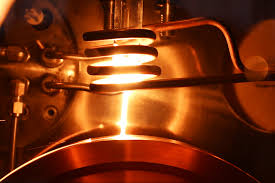
Breaking News
 A trillion-dollar gap: 12 charts highlighting Canada's capital flight crisis
A trillion-dollar gap: 12 charts highlighting Canada's capital flight crisis
 Moderna CEO Stéphane Bancel Says They Are Curbing Vaccine Trials Amid Increased Scrutiny...
Moderna CEO Stéphane Bancel Says They Are Curbing Vaccine Trials Amid Increased Scrutiny...
 Will SILVER CRASH | BANKS PANIC | Bonds are TOAST
Will SILVER CRASH | BANKS PANIC | Bonds are TOAST
 Kiyosaki Warns of Wealth Confiscation, Careful With Your Silver and Gold
Kiyosaki Warns of Wealth Confiscation, Careful With Your Silver and Gold
Top Tech News
 Researchers who discovered the master switch that prevents the human immune system...
Researchers who discovered the master switch that prevents the human immune system...
 The day of the tactical laser weapon arrives
The day of the tactical laser weapon arrives
 'ELITE': The Palantir App ICE Uses to Find Neighborhoods to Raid
'ELITE': The Palantir App ICE Uses to Find Neighborhoods to Raid
 Solar Just Took a Huge Leap Forward!- CallSun 215 Anti Shade Panel
Solar Just Took a Huge Leap Forward!- CallSun 215 Anti Shade Panel
 XAI Grok 4.20 and OpenAI GPT 5.2 Are Solving Significant Previously Unsolved Math Proofs
XAI Grok 4.20 and OpenAI GPT 5.2 Are Solving Significant Previously Unsolved Math Proofs
 Watch: World's fastest drone hits 408 mph to reclaim speed record
Watch: World's fastest drone hits 408 mph to reclaim speed record
 Ukrainian robot soldier holds off Russian forces by itself in six-week battle
Ukrainian robot soldier holds off Russian forces by itself in six-week battle
 NASA announces strongest evidence yet for ancient life on Mars
NASA announces strongest evidence yet for ancient life on Mars
 Caltech has successfully demonstrated wireless energy transfer...
Caltech has successfully demonstrated wireless energy transfer...
 The TZLA Plasma Files: The Secret Health Sovereignty Tech That Uncle Trump And The CIA Tried To Bury
The TZLA Plasma Files: The Secret Health Sovereignty Tech That Uncle Trump And The CIA Tried To Bury
AI discovers new rare-earth-free magnet at 200 times the speed of man

As some entities identify new (or at least overlooked) sources to meet the growing demand for rare earth materials, others are looking toward new tools. UK deep-tech company Materials Nexus announced on Tuesday that it has designed a new rare-earth-free permanent magnet with the help of its AI platform. It says the AI-driven discovery and development process was 200 times faster than the resource-intensive manual route, bringing new hope to an electrifying world with a growing appetite for powerful magnets.
With the world moving away from internal combustion engines and gradually embracing electric mobility, the demand for compact, high-power motors is rapidly rising. By far the most popular option in the automotive industry right now is the permanent magnet motor, which powers upward of 80% of modern electric vehicles.



